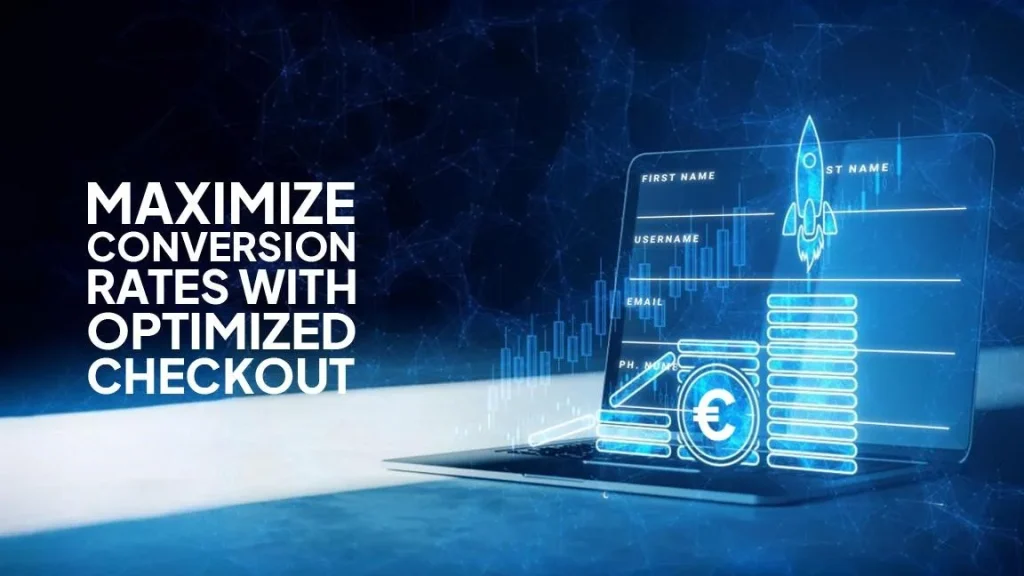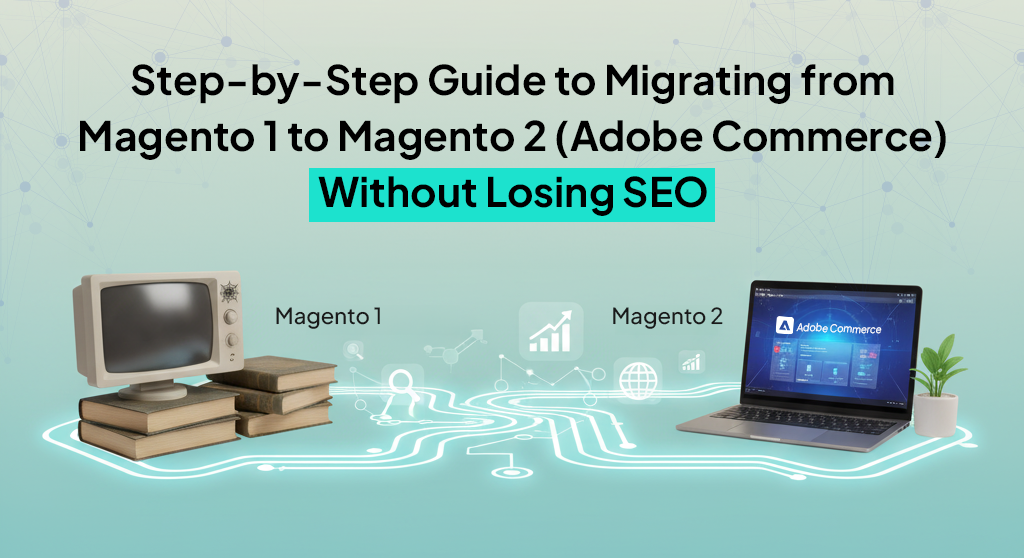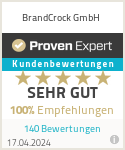Top 15 Essential Tips to Launch Your E-Commerce Store with Shopware
Launching an E-Commerce website can be both exciting and challenging, especially when you’re starting from scratch with a platform like Shopware. However, if you only find yourself feeling overwhelmed by the platform, don’t worry — we’re here to support you. This detailed guide offers beginner-friendly tips that can help you build a robust, scalable online store, laying the foundation for long-term success.
1. Choose the Right Shopware Edition for Your Business
Selecting the correct Shopware edition is the cornerstone of building a successful e-commerce store. Each edition is designed to cater to different business needs, and offers varying levels of features and flexibility.
1.1 Shopware Rise
Shopware Rise is the entry-level option, designed for small to medium B2C (business-to-consumer) and D2C (direct-to-consumer) merchants. At approximately €600/month, Rise provides essential e-commerce tools such as premium themes, a streamlined user interface, and social commerce capabilities.
It’s ideal for businesses looking to establish a memorable brand presence without the complexity of managing large-scale operations. Rise allows you to create a visually appealing online store with a strong user experience, making it ideal for businesses that prioritize a polished and professional look. Its tools are comprehensive enough to give you a strong start, but you’ll need to upgrade as you scale.
1.2 Shopware Evolve
If you’re planning to grow your business beyond small-scale operations, Evolve is the next step up. Building upon the features found in Rise, Evolve adds a host of advanced functionalities like B2B tools, more flexible pricing strategies, and enhanced content management options. This edition is crafted for businesses that cater to both B2B and B2C markets, offering more scalability as your customer base expands.
Evolve is ideal for companies planning rapid growth, as it integrates additional features like multi-store management, making it easier to manage larger product catalogs and sales channels. While pricing for this edition is bespoke and depends on the business’s unique needs, Evolve’s flexibility ensures you’re prepared for scaling.
1.3 Shopware Beyond
For large enterprises and global brands, Shopware Beyond offers the most comprehensive set of tools. In addition to all the features available in Rise and Evolve, Beyond includes premium options like multi-inventory management, customer-specific pricing, and advanced customer relationship management (CRM). It also comes with 24/7 support, ensuring your store can handle the demands of operating on a global scale.
Beyond is ideal for businesses with complex operations that require constant flexibility, particularly when managing multiple storefronts, currencies, or markets. The cost reflects its enterprise-level capabilities, but the benefits—especially when it comes to customer service and global reach—are unmatched.
2. Invest in Quality Hosting for Performance
The hosting provider you select will significantly impact your store’s performance, from how quickly your pages load to how well your site can handle spikes in traffic. With Shopware, you have several hosting options: self-hosted, cloud-hosted, and Platform-as-a-Service (PaaS).
2.1 Cloud Hosting vs. Self-Hosting
Self-hosting offers greater control over server management but requires an IT team capable of handling server uptime, security, and performance optimization. This option might appeal to businesses that want maximum flexibility and have the in-house expertise to manage infrastructure. However, for businesses without dedicated tech resources, self-hosting can become overwhelming.
On the other hand, cloud hosting—offered through Shopware’s PaaS or SaaS options—provides scalability without the need to manage the underlying infrastructure. It’s an excellent option for businesses looking to focus their resources on marketing, customer service, and scaling the business rather than the technical intricacies of server management.
2.2 Essential Hosting Features
When choosing a hosting provider, prioritize uptime, security, and scalability. A minimum uptime of 99.9% ensures your store is always accessible, while built-in security features like SSL certificates and daily backups protect against data breaches. It’s also important that your hosting provider supports Shopware’s system requirements, particularly for PHP and MySQL, which are critical for running your store smoothly.
3. Utilize Shopware’s SEO Features to Boost Visibility
Optimizing your store for search engines is crucial for driving organic traffic and standing out in today’s crowded e-commerce landscape. Fortunately, Shopware offers a suite of SEO tools that help you optimize every aspect of your site, from product pages to metadata, ensuring better visibility and higher rankings in search engine results.
3.1 Optimize Product Pages
Shopware provides numerous options to customize product pages for SEO, including fields for meta descriptions, product titles, and alt text for images. These features are essential for making your products discoverable by search engines. However, effective SEO isn’t just about keywords. Each product page should provide valuable, relevant content that addresses customer needs while incorporating keywords naturally.
Focus on writing engaging product descriptions that include key information customers are searching for. Avoid keyword stuffing, which can lead to penalties from search engines, and instead aim for a balanced approach that enhances both user experience and SEO performance.
3.2 Structured Data and Rich Snippets
One of the most effective ways to improve your store’s SEO is by incorporating structured data into your product pages. Rich snippets are pieces of information that appear directly in search engine results, such as star ratings, prices, or stock availability.
Shopware makes it easy to include structured data, allowing search engines to understand your site’s content better and display rich snippets. This not only improves your store’s visibility but also increases click-through rates, as users are more likely to engage with a search result that provides detailed information upfront.
3.3 Clean URLs and Canonical Tags
Shopware’s SEO tools also include URL rewriting capabilities, allowing you to create clean, readable URLs that both users and search engines can easily understand. For example, instead of a generic URL like “yourstore.com/product-12345,” Shopware lets you create an SEO-friendly version like “yourstore.com/blue-running-shoes,” which is far more appealing and effective for ranking.
Canonical tags are another critical feature to prevent duplicate content issues. If you sell similar products or use pagination for large categories, canonical tags ensure that search engines recognize the correct page to index, preventing confusion and avoiding penalties for duplicate content.

4. Design an Engaging and User-Friendly Shopping Experience
A well-designed and intuitive shopping experience is the backbone of any successful e-commerce website. With Shopware, you have the tools to craft a user interface that not only looks great but also functions seamlessly.
4.1 Responsive Design and Mobile Optimization
Today, mobile users make up a significant portion of online shoppers. Therefore, ensuring your store is fully optimized for mobile devices is crucial. Shopware provides built-in responsive design capabilities, ensuring that your website looks and works great on any screen size, whether it’s a smartphone, tablet, or desktop.
A mobile-friendly design should prioritize speed and simplicity. Pages should load quickly, and navigation should be smooth, with key features such as search bars, filters, and call-to-action buttons easily accessible. The checkout process should be simplified to accommodate mobile users, offering features like one-click checkout and saved payment methods.
4.2 Streamlined Navigation and Clear Call-to-Actions
The layout of your website should guide users naturally through the buying journey. From browsing products to making a purchase, a seamless flow keeps customers engaged. Shopware’s layout editor allows you to customize the look and feel of your store, but it’s essential to prioritize functionality alongside aesthetics.
Well-placed call-to-action (CTA) buttons are equally important. These guide customers towards making a purchase or taking other key actions, like signing up for newsletters or viewing related products. Effective CTAs are visually prominent and use concise, actionable language like “Buy Now,” “Add to Cart,” or “Learn More.”
4.3 Personalized Shopping with Shopware’s Rule Builder
A personalized shopping experience can be the difference between a one-time visitor and a loyal customer. Shopware’s Rule Builder is a powerful tool that lets you create dynamic, personalized shopping experiences for your customers.
It allows you to set specific rules and triggers, such as offering discounts to repeat customers, showing relevant products based on browsing history, or customizing content based on geographic location.
5. Leverage Shopware’s Plugin Ecosystem for Extended Functionality
Shopware’s plugin ecosystem is one of its most notable features, allowing you to extend the functionality of your online store with ease. With thousands of plugins available, you can add everything from payment gateways and shipping calculators to marketing tools and analytics integrations, all tailored to meet your business needs.
5.1 Enhance User Experience with Frontend Plugins
To create a seamless and engaging customer experience, consider utilizing some of the many frontend plugins available in the Shopware store. These plugins can improve everything from the look and feel of your product pages to the checkout process.
Other essential frontend plugins include social sharing options and chatbots, which allow customers to interact with your store in real-time. Offering live chat support or AI-powered chatbots can significantly reduce cart abandonment rates by addressing customer concerns immediately, ensuring they don’t leave your store without completing their purchase.
5.2 Integrate Essential Backend Plugins
In addition to frontend enhancements, backend plugins offer powerful tools to streamline your business operations. For instance, you can find plugins that integrate accounting software, automate inventory management, or optimize your product feed for Google Shopping. These plugins save time and reduce manual work, allowing your team to focus on higher-value tasks like marketing and customer engagement.
Another useful backend plugin category is analytics and reporting. By integrating tools like Google Analytics or Hotjar, you gain deeper insights into customer behavior, sales performance, and website traffic. This data enables more informed decision-making, helping you adjust marketing strategies or website design based on actual user interactions.
5.3 Expand Payment and Shipping Options
Shopware’s plugin ecosystem also makes it easy to integrate additional payment gateways and shipping providers. Customers value flexibility, and offering multiple payment options—such as PayPal, Stripe, or Klarna—ensures they can choose the method they’re most comfortable with. Likewise, integrating different shipping solutions gives customers more control over delivery options, which can be a significant factor in closing sales.
6. Implement Multi-Channel Selling with Shopware
Selling across multiple channels is no longer optional—it’s essential. Shopware makes it easy to manage multi-channel selling, allowing you to reach customers on various platforms while maintaining a unified inventory and order management system.
6.1 Expand Your Reach with Marketplace Integration
Shopware offers seamless integration with major online marketplaces like Amazon, eBay, and Zalando. These platforms give you access to millions of potential customers, making it easier to grow your business without relying solely on traffic to your website. By synchronizing your inventory across channels, you reduce the risk of overselling or running into stock issues.
6.2 Social Commerce: Sell Directly Through Social Media
Shopware also supports social commerce, allowing you to sell directly on platforms like Instagram and Facebook. Social media is a powerful sales channel, particularly for brands targeting younger demographics. By integrating your Shopware store with social media platforms, you can showcase products, run promotions, and even allow customers to check out without leaving the app.
6.3 Unified Order and Inventory Management
Managing multiple sales channels can be challenging, but Shopware’s multi-channel tools ensure that your inventory and orders remain synchronized across all platforms. This means that when a product is sold on Amazon, your website inventory is updated automatically, preventing overselling and ensuring a smooth customer experience.
Centralized order management also allows you to process returns and exchanges more efficiently, regardless of the platform where the sale was made.

7. Maximize Conversion Rates with Optimized Checkout Processes
The checkout process is where many customers abandon their carts, making it a critical aspect of your e-commerce site that can make or break a sale. Shopware offers a highly customizable checkout experience that allows you to reduce friction and encourage customers to complete their purchases.
7.1 Offer Guest Checkout and Multiple Payment Options
One of the simplest ways to reduce cart abandonment is by offering a guest checkout option. Forcing customers to create an account before completing a purchase can be a major turnoff, particularly for first-time visitors. By allowing guest checkout, you remove an unnecessary barrier and make it easier for customers to complete their transactions.
7.2 Simplify the Checkout Process
Shopware’s one-page checkout option is a great way to streamline the buying process. By consolidating all necessary information—such as shipping, billing, and payment details—onto a single page, you reduce the number of steps required to complete a purchase. This simplifies the process, reducing the chances of cart abandonment due to frustration or confusion.
7.3 Use Trust Signals to Build Confidence
During checkout, it’s essential to build trust with your customers. Displaying security badges, SSL certificates, and customer reviews can reassure visitors that their personal information is safe. Trust signals like money-back guarantees and clear return policies can also reduce hesitation, encouraging customers to finalize their purchases.
8. Utilize Shopware’s SEO Features for Improved Search Engine Visibility
A well-optimized e-commerce website is significant for attracting organic traffic. With Shopware’s SEO-friendly features, you can significantly enhance your site’s visibility on search engines like Google. This not only increases the chances of potential customers finding your store but also helps establish your brand as a trusted authority in your industry.
8.1 Optimize Meta Titles and Descriptions
Meta titles and descriptions are essential for informing search engines and users about the content of your pages. Shopware allows you to easily customize these elements for each page, including product listings, category pages, and blog posts. Make sure that your titles are concise, keyword-rich, and accurately reflect the content of the page.
Descriptions, on the other hand, should serve as a brief yet compelling summary that encourages users to click through. Incorporating relevant keywords while maintaining natural and engaging language can improve your click-through rate (CTR). Remember, the meta description is often the first thing users see in search results, so make it count.
8.2 Utilize SEO-Friendly URLs
URLs play a vital role in how search engines understand your page structure. Shopware generates clean, readable URLs automatically, but you also have the option to manually edit them. It’s important to include relevant keywords in your URLs to make them more SEO-friendly, as well as ensure they are concise and free of unnecessary parameters or numbers.
For example, a product URL like “yourstore.com/product/12345” should be changed to something like “yourstore.com/mens-leather-jacket.” This not only improves search engine rankings but also provides a better user experience by making the URL more descriptive.
8.3 Leverage Shopware’s Rich Snippets
Rich snippets are a powerful way to improve your visibility in search engine results. These enhanced listings display additional information about your products, such as ratings, reviews, and prices. Shopware’s rich snippet integration ensures that your products can appear more prominently in search results, helping you stand out from competitors.
8.4 Maintain Site Speed and Mobile Performance
Site speed is a critical factor in both user experience and SEO rankings. A slow website not only frustrates visitors but can also result in lower search engine rankings. Shopware offers several tools to help you optimize your site’s performance, such as caching mechanisms, image optimization, and code minification.
Mobile optimization is equally important for SEO, as Google now prioritizes mobile-first indexing. Ensure that your site is fully responsive and optimized for mobile devices, as a poor mobile experience can lead to higher bounce rates and lower rankings.
9. Create Compelling Product Pages to Boost Sales
Your product pages are where customers make their final purchasing decisions, so it’s essential to make them as compelling and informative as possible. Shopware offers flexible tools to help you craft product pages that not only look great but also provide all the necessary information customers need to make a purchase.
9.1 High-Quality Product Images and Videos
Visual content is one of the most important factors in online shopping. Customers want to see exactly what they’re purchasing, and high-quality images are essential for building trust. Shopware allows you to showcase your products with multiple images, zoom features, and even 360-degree views.
Morever, incorporating product videos can further enhance the customer experience. Videos can demonstrate how a product works, highlight key features, or show it in real-life scenarios. By providing a rich visual experience, you’re more likely to convert visitors into buyers.
9.2 Detailed Product Descriptions and Specifications
A well-written product description is more than just a list of features—it should tell a story. Use your descriptions to highlight the benefits of the product, focusing on how it can solve a problem or improve the customer’s life. While it’s important to include technical details, such as size, material, and specifications, make sure the content is engaging and written in a way that appeals to your target audience.
Shopware’s product page editor allows you to include both short and long descriptions, as well as bullet points for quick readability. Use these tools to balance detailed information with easy-to-digest summaries, ensuring customers can find the details they need without feeling overwhelmed.
9.3 Customer Reviews and Social Proof
Customer reviews are one of the most powerful forms of social proof. Positive reviews reassure potential buyers that the product is worth their investment, while also helping you build trust with new customers. Shopware enables you to easily integrate a review system on your product pages, allowing customers to leave feedback and rate their purchases.
9.4 Cross-Sell and Up-Sell Opportunities
Shopware’s built-in cross-selling and up-selling features allow you to showcase related or complementary products on your product pages. By suggesting additional items that might interest the customer, you can increase the average order value and boost sales.
For example, if a customer is viewing a camera, you could suggest accessories like a camera bag or tripod. These personalized recommendations not only provide added value to the customer but also increase the chances of making multiple sales in one transaction.
10. Improve Customer Retention with Loyalty Programs and Discounts
Customer retention is just as important as customer acquisition. A loyal customer base not only provides a steady stream of revenue but also serves as a valuable source of word-of-mouth marketing. Shopware offers various tools for creating loyalty programs and discounts that can help keep your customers coming back for more.
10.1 Create a Points-Based Loyalty Program
Loyalty programs are an excellent way to reward repeat customers and encourage them to continue shopping with you. Shopware’s Rule Builder allows you to set up a points-based system where customers earn points for every purchase. These points can then be redeemed for discounts or special offers on future purchases.
The key to a successful loyalty program is simplicity and clarity. Make sure customers understand how the program works and what they need to do to earn rewards. Offering additional incentives, such as double points on special occasions or exclusive discounts for loyalty members, can further enhance the appeal of the program.
10.2 Offer Personalized Discounts and Promotions
Personalization is a powerful tool for improving customer retention. By using Shopware’s personalization features, you can offer targeted discounts and promotions to different segments of your customer base. For example, you might offer a special discount to customers who haven’t made a purchase in a while or provide a loyalty bonus to those who have reached a certain spending threshold.
Shopware’s marketing tools allow you to create personalized email campaigns, where you can offer exclusive deals, birthday discounts, or sneak peeks at new products. These personalized touches show customers that you value their business, encouraging them to return to your store.
10.3 Leverage Abandoned Cart Emails
Cart abandonment is a common issue in e-commerce, but it also presents an opportunity. Shopware’s abandoned cart recovery feature allows you to automatically send reminder emails to customers who have left items in their carts without completing their purchase. These emails can include a discount code or free shipping offer to incentivize them to return and finish their transaction.
Timing is key when it comes to abandoned cart emails. Sending the first reminder within a few hours of the cart being abandoned is often most effective, followed by a second email a day or two later. These reminders can recover lost sales and improve your overall conversion rate.
10.4 Offer Exclusive Discounts to Retain VIP Customers
For your most loyal customers, consider offering exclusive discounts or early access to new products. VIP customers often feel a stronger connection to your brand, and rewarding their loyalty with special offers can further strengthen that bond. You can create a VIP tier within your loyalty program or offer these perks based on spending history or purchase frequency.
By focusing on customer retention strategies like loyalty programs and personalized promotions, you can increase repeat business and create long-term relationships with your customers. These efforts not only boost revenue but also help build a loyal customer base that will advocate for your brand.
11. Simplify Checkout Process to Reduce Cart Abandonment
One of the leading causes of cart abandonment in e-commerce is a complicated checkout process. A seamless, easy-to-navigate checkout experience can significantly increase conversion rates and boost sales. With Shopware, you can streamline the checkout process to make it as frictionless as possible, and ensure that customers complete their purchases with minimal effort.
11.1 Enable Guest Checkout
Not all customers want to create an account before making a purchase. Forcing registration can lead to frustration and cart abandonment. Shopware allows you to enable guest checkout, which makes it easy for customers to complete their transactions without the need to sign up for an account.
11.2 Minimize the Number of Steps
Each additional step in the checkout process increases the likelihood that a customer will abandon their cart. Shopware’s flexible checkout system allows you to reduce the number of steps required to complete a purchase. A single-page checkout, where customers can enter shipping information, payment details, and review their order on one page, is often the most effective.
11.3 Offer Multiple Payment Options
One of the top reasons for cart abandonment is the lack of preferred payment options. With Shopware, you can offer a variety of payment methods, from traditional credit and debit cards to newer options like PayPal, Google Pay, Apple Pay, and even cryptocurrency, depending on your customer base.
11.4 Display Trust Signals and Security Certifications
Trust is a major factor in e-commerce, especially during the checkout process. Customers need to feel confident that their payment information is secure. Displaying trust signals, such as SSL certificates, security badges, and clear privacy policies, can reassure customers that their data is protected.
11.5 Offer Clear Shipping and Return Policies
Unexpected costs, particularly related to shipping, are a common reason for cart abandonment. Make sure that your shipping costs are transparent from the beginning of the checkout process. Shopware allows you to display shipping options and costs upfront, so customers aren’t surprised by extra fees at the final stage of their purchase.
12. Enhance Customer Experience with Multilingual and Multicurrency Support
Expanding your e-commerce store to reach international markets can greatly increase your customer base. Shopware’s multilingual and multicurrency support allows you to provide a seamless shopping experience for customers from different regions, boosting global sales and improving customer satisfaction.
12.1 Offer Multiple Languages for International Customers
A major part of offering a great customer experience in international markets is speaking their language—literally. Shopware makes it easy to set up a multilingual website, allowing you to translate your product descriptions, checkout process, and other key elements into different languages.
12.2 Accept Multiple Currencies to Simplify Purchases
Along with language support, it’s crucial to offer multiple currencies to simplify the purchasing process for international customers. Shopware enables you to configure your store to accept various currencies, allowing customers to pay in their local currency without having to worry about conversion rates or extra fees.
12.3 Leverage Geolocation for Personalized Shopping
Shopware’s geolocation features allow you to automatically detect a user’s location and adjust language, currency, and even shipping options accordingly. This creates a more personalized shopping experience, where customers are greeted with content tailored to their region from the moment they land on your website.
For example, if a customer from Germany visits your site, they can be automatically directed to the German version of your store, with prices displayed in euros and relevant shipping options available. This reduces the complexity of navigating your site and makes the shopping experience more intuitive.
12.4 Ensure Compliance with International Regulations
When expanding into international markets, it’s important to comply with local regulations, including tax laws, data protection rules, and consumer rights. Shopware provides tools that allow you to customize your checkout process and payment systems to meet these requirements, making sure that your store remains compliant with international laws.
13. Leverage Social Media Integration to Drive Traffic and Engagement
Social media has become an essential marketing tool for e-commerce businesses. Shopware’s integration capabilities make it easy to connect your store with social media platforms, helping you drive traffic, increase brand awareness, and engage with your audience. By integrating social media into your e-commerce strategy, you can create a more dynamic and interactive shopping experience.
13.1 Integrate Social Media Feeds
With Shopware, you can seamlessly integrate your social media feeds directly into your website. This allows you to showcase your latest Instagram posts, Facebook updates, or Twitter feeds in real-time, keeping your content fresh and engaging.
Displaying social media content on your e-commerce site can also build a stronger connection between your brand and your audience. It shows customers that you’re active and engaged, and it encourages them to follow you on social platforms for the latest updates, promotions, and news.
13.2 Enable Social Sharing for Products
Social sharing buttons allow customers to easily share your products on their favorite platforms, whether it’s Facebook, Instagram, Pinterest, or WhatsApp. Shopware enables you to add social sharing buttons to your product pages, making it simple for customers to spread the word about your products to their social networks.
When customers share your products, they are essentially providing free marketing, helping you reach a broader audience. This word-of-mouth promotion can increase brand exposure and drive more traffic to your store, potentially leading to more sales.
13.3 Run Social Media Ad Campaigns
Shopware’s integration with social media advertising platforms allows you to run targeted ad campaigns that drive traffic directly to your store. Whether you’re using Facebook Ads, Instagram Ads, or Pinterest Promoted Pins, you can create highly targeted campaigns based on customer demographics, interests, and shopping behaviors.
By connecting your Shopware store to these platforms, you can track conversions, analyze performance, and optimize your ads to maximize ROI. Social media advertising is a powerful way to reach potential customers who may not have discovered your store through organic search or other channels.
14. Implement SEO Best Practices to Boost Visibility
Search engine optimization (SEO) is of utmost importance for driving organic traffic to your e-commerce website. And, Shopware provides robust SEO tools that enable you to optimize your store for search engines, and ensure that your products are easily discoverable by potential customers.
14.1 Optimize Product Pages for Keywords
The core of SEO lies in optimizing your product pages with the right keywords. These keywords should reflect the terms your customers are likely to search for when looking for products like yours. Shopware allows you to input keyword-rich titles, meta descriptions, and URLs for each product page, ensuring that they align with search engine algorithms.
Be sure to conduct thorough keyword research to identify the terms most relevant to your industry and products. Tools like Google Keyword Planner or Ahrefs can help you find high-volume, low-competition keywords that will improve your ranking.
14.2 Create Unique, High-Quality Content
Search engines prioritize websites that provide unique, valuable content. In addition to optimizing your product pages, Shopware enables you to create blog posts, product descriptions, and other types of content that engage your audience and improve your SEO.
Consider writing blog posts that answer common questions related to your industry or products. For example, a fashion store might create posts about the latest trends or how to style different pieces. By providing informative and valuable content, you can attract visitors to your website, keep them engaged, and improve your rankings in search results.
14.3 Improve Website Load Time
Page speed is a crucial factor in SEO rankings. If your website takes too long to load, visitors are likely to leave, and search engines will penalize you with lower rankings. Shopware’s platform is designed to deliver fast load times, but you should also take steps to optimize images, reduce unnecessary code, and use caching to further improve performance.
Google’s PageSpeed Insights tool can help you analyze your website’s speed and provide actionable suggestions to improve it. A faster website not only improves SEO but also enhances the overall user experience, increasing the likelihood of conversions.
14.4 Utilize Structured Data for Rich Snippets
Structured data helps search engines understand the content of your website and present it in a more informative way in search results. By implementing structured data (such as product prices, availability, and reviews), you can improve your chances of appearing in rich snippets, which stand out in search results and increase click-through rates.
Shopware supports structured data, allowing you to add these tags to your product pages without needing to write complex code. Rich snippets can improve visibility and attract more organic traffic by making your listings more appealing to users.
15. Consider Professional Support for Advanced Customizations
Even though Shopware is built to be user-friendly, and offers a wide range of customization options and plugins, there comes a point when advanced customizations or integrations might exceed your in-house capabilities.
As your e-commerce store grows, the need for specialized features, more complex workflows, and integrations with external systems often arises. This is when partnering with a professional Shopware agency becomes invaluable.
Advanced customizations go beyond just changing the look of your store; they involve creating bespoke solutions tailored to your business model. Whether it’s developing a unique plugin, customizing your checkout experience, or ensuring seamless integration with third-party software like CRM or ERP systems, expert knowledge is critical.
Trying to implement these features without proper expertise can lead to technical issues, poor performance, and ultimately, loss of sales.
15.1 The Benefits of Working with Experts
Partnering with a certified Shopware agency like BrandCrock offers numerous advantages, particularly when it comes to advanced customizations. Here are some key benefits:
- Tailored Plugin Development: Off-the-shelf plugins may not always meet the specific needs of your business. With custom plugin development, you can add unique features to your store, such as specialized payment gateways, custom workflows, or advanced analytics tools that help you stay ahead of the competition.
- Integration with External Systems: As your business grows, integrating your Shopware store with external systems like ERP, CRM, or accounting software becomes crucial for efficient operations. A professional agency ensures smooth integration, helping you manage inventory, track customer interactions, and automate business processes seamlessly.
- Optimized Performance: Advanced customizations can impact the performance of your site if not implemented properly. An experienced Shopware expert ensures that all customizations are optimized for performance, so your site remains fast and responsive, even during peak traffic periods.
- Ongoing Support and Maintenance: Custom solutions often require ongoing support to ensure they remain compatible with future Shopware updates. A professional agency provides this ongoing maintenance, ensuring your store stays up to date with the latest features and security patches.
15.2 Why Choose BrandCrock for Your Advanced Customizations
At BrandCrock, we are experts in offering tailored Shopware solutions that match your business objectives. As a certified Shopware partner, we have extensive experience in delivering advanced customizations that improve your store’s functionality, performance, and scalability.
Our team works closely with you to understand your specific needs and develop bespoke solutions that help your business grow.
Here’s what BrandCrock can offer:
- Custom Plugin Development: We build plugins that are fully tailored to your business requirements, ensuring seamless functionality and easy integration into your existing setup.
- Seamless Integrations: Whether you need to integrate an ERP, CRM, or any other third-party system, we make sure that your Shopware store works smoothly with external tools, reducing the need for manual work and improving efficiency.
- Performance Optimization: Our expertise ensures that all advanced customizations are built with performance in mind, keeping your store fast and secure while supporting a growing customer base.
- Dedicated Support: As your business evolves, we offer ongoing support and maintenance, keeping your store optimized and secure while you focus on growth.
Final Thoughts
Whether you’re just starting your first e-commerce store or scaling an existing one, Shopware offers the flexibility, scalability, and tools to support your growth. By following the 15 tips in this guide, you can build a robust, high-performing online store designed to thrive in today’s competitive marketplace. From SEO optimization to personalized shopping experiences, these steps lay the foundation for a successful e-commerce journey.
When you’re ready to take your Shopware store to the next level, don’t hesitate to seek expert advice from certified agencies like BrandCrock, which can provide tailored solutions and support that align with your business objectives.
Contact us today and get a free quote!






